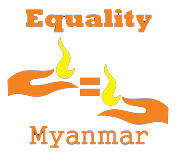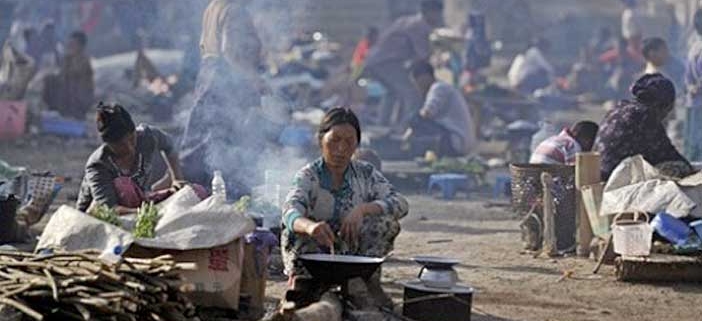WEDNESDAY, 15 FEBRUARY 2012
The head of Burma’s fledgling human rights panel on Tuesday said it would not launch probes into allegations of abuses in ethnic conflict areas to encourage regime efforts to seek an end to fighting.
Bloody battles have raged since June in Kachin State in the far north, marring the progress of a new regime that has surprised observers with positive reforms, including tentative ceasefire deals with several rebel groups.
Win Mra, the chairman of the country’s human rights commission, told journalists at a news conference in Bangkok that attempts at reconciliation were “essentially political”.
He said the panel had decided investigations into the conflict zones were “not appropriate at this present point in time”.
“With the establishment of the peace, other problems like human rights violations and atrocities supposed to be committed against ethnic groups will also recede into the background,” he said.
Last month a report by Human Rights Watch accused the Burmese army of abuses including rape, torture and killing of civilians in ethnic minority conflict zones in 2011.
The Burmese regime has reached peace deals with several rebel groups including in eastern Karen and Shan states, but fighting in Kachin which borders China has created uncertainty over the progress of reconciliation efforts.
President Thein Sein, a former general who came to power last year when outright military rule ended, has vowed to work towards an end to civil war that has gripped parts of Burma since independence in 1948.
Resolution of the conflicts is a demand of Western nations which impose sanctions on the regime.
The government has made progress on other key areas including holding talks with democracy icon Aung San Suu Kyi, who has been allowed to stand in an April by-election, and released hundreds of political prisoners.
Win Mra acknowledged that rights abuses continued in Burma despite recent changes, citing land disputes, and mistreatment by officials as major sources of grievance.
“You are right in saying that human rights problems continue because this is something that cannot be tackled within a short period of time,” he said.
“It is a process, as you would know, but I think we have started to handle this problem.”
photo : Reuters


 Equality Myanmar (EQMM) is a leading nongovernmental organization that organises a wide range of human rights education and advocacy programs, the documentation human rights violations, and provides emergency support for activists, human rights defenders, and their families. We work with a range of local civil society organizations, educators, activists, various local actors, and our programs and activities reach all states and regions in Myanmar.
Equality Myanmar (EQMM) is a leading nongovernmental organization that organises a wide range of human rights education and advocacy programs, the documentation human rights violations, and provides emergency support for activists, human rights defenders, and their families. We work with a range of local civil society organizations, educators, activists, various local actors, and our programs and activities reach all states and regions in Myanmar.
